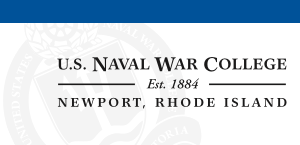Naval War College Review
Abstract
“Abu Ghraib,” “Guantanamo,” “water boarding,” and “torture” are politically charged and evocative terms that bring to mind interrogation. Nine years into the Afghanistan and Iraq wars (though the “combat phase” of the latter has re- cently ended), strenuous debate continues over the efficacy of human intelli- gence (HUMINT) techniques employed to obtain critical information. It is my definite sense that this debate has become so politically charged as to be counter- productive. Since interrogation often provides the essential elements of information in asymmetrical-warfare analysis, perhaps the time has come to end the debate and ask the question, “How is the military intelligence (MI) community preparing and supporting its interrogators for the future?” Now is the time for MI to enact significant structural changes in interrogation-facility management to enable exploiters more effectively while providing necessary oversight.
Recommended Citation
Cruse, Virginia
(2011)
"Commentary,"
Naval War College Review: Vol. 64:
No.
1, Article 9.
Available at:
https://digital-commons.usnwc.edu/nwc-review/vol64/iss1/9

